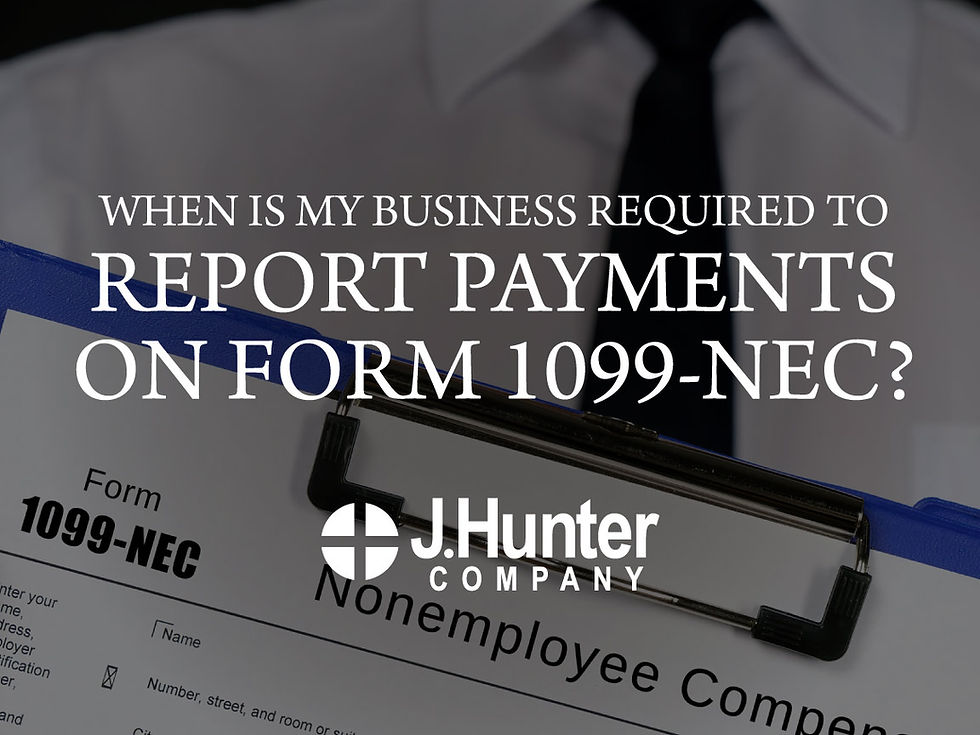When is my business required to report payments on Form 1099-NEC?
- Jarad Hunter

- Dec 6, 2023
- 2 min read
Updated: Sep 22, 2024

The 1099-NEC form is used to report nonemployee compensation, such as payments to independent contractors, freelancers, and other self-employed individuals. If your business made payments of $600 or more to a nonemployee during the tax year, you may be required to file a 1099-NEC form with the IRS.
There are exceptions to the general rule, most notably:
1. The rule usually applies to payments for services. If you purchase tangible goods, typically, you are not required to report this payment on 1099-NEC.
2. Generally, payments made to corporations are exempt, including LLCs taxed as corporations. If uncertain, review the vendor's W-9 to ascertain corporate status.
3. Only payments made in the course of business are reportable. Personal payments are excluded.

4. Electronic payments, e.g., those made by credit card or Paypal, etc. are not reportable. Of course, this exception is becoming more relevant each year. For electronic payments, the onus is on the payment settlement entity to report the payment on 1099-K. As such, the IRS does not want the business to also report the payment- it would result in double-reporting. If you regularly use an electronic payment platform to make payments that would otherwise be reportable on 1099-NEC, check with the vendor to see if the payments will be reported on 1099-K. If such payments are reportable on 1099-K, do not report these payments on 1099-NEC.
Summing-up, with all these exceptions, it can be tricky figuring out when to report and what payments to report on Form 1099-NEC. In addition, the regulations are in flux as more and more service providers are being paid electronically (as opposed to cash or check). It's critical to review the most recent IRS guidelines or consult with a tax professional to ensure your business is meeting all necessary 1099-NEC reporting requirements.





Comments